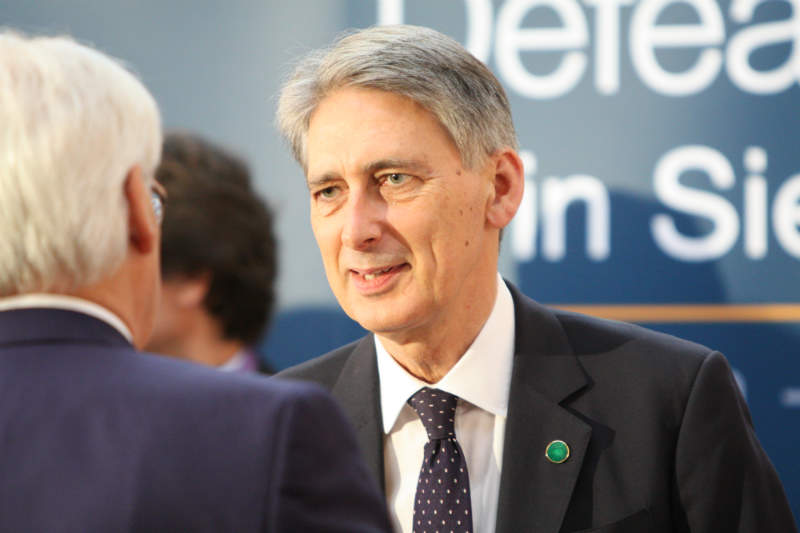
The UK’s autumn 2017 budget has been revealed by the Chancellor Phillip Hammond, and as expected proposed changes to the use of plastic and disposal of plastic waste was raised as an important issue and matter of national concern.
Despite Hammond stating that “I want us to become a world leader in tackling the scourge of plastic”, the Chancellor did not lay out any immediate changes for the industry to expect; instead announcing that investigations will be undertaken to evaluate how the tax system and charges on single-use plastic items can reduce waste.
The question now is what this will mean for the UK packaging industry long-term. The government’s consultation period for plastic could take some time to come into effect, which places manufacturers in limbo in the meantime.
A tax on takeaways?
The response from the packaging industry so far has of course been mixed. Some, such as renewable materials company Stora Enso are keen to embrace a move away from plastic use, advocating wood-based alternatives. “Single-use plastics have been seen as a necessary evil, despite being hugely environmentally damaging. But that’s changing,” says packaging division executive vice-president Gilles van Nieuwenhuyzen. “There’s still some work to do on the research and commercial side before we can fully replace single-use plastic with renewable alternatives, but tax incentives would certainly provide a welcome boost to that goal. It’s what the consumer wants and the environment needs.”
Others though, see the focus on ‘single-use’ plastic as putting a target on the takeaway meal industry. Executive director of the Foodservice Association Martin Kersh has called this a tax on fish and chips, and stated that the chancellor’s announcement has demonstrated that the Treasury has “failed to consult with the packaging industry and its consumers,” as he claims that current recycling initiatives have not been taken into account. “The targeting of individual packaging types will not solve the litter issue,” he said “nor will it ensure that all items used on the go are collected and the materials used to produce them recycled.”
Incentivising sustainable alternatives
Plastic packaging, particularly its disposal, has consistently been a heated talking point over the last few years, though recent conversations surrounding the rising concern of ocean plastic have brought the issue to the fore once again. Calls by David Attenborough and the BBC documentary Blue Planet II to address the matter, as well as movements from environmental bodies, such as Greenpeace’s #Choke campaign, have increased public awareness.

US Tariffs are shifting - will you react or anticipate?
Don’t let policy changes catch you off guard. Stay proactive with real-time data and expert analysis.
By GlobalDataGreenpeace has labelled the budget “one of the least green ever”, but concede that movement on plastics is encouraging. “It’s great that Philip Hammond recognises that the root of the problem here is the relentlessly increasing torrent of plastic products which are intended for a moment’s use but last for centuries,” says senior oceans campaigner Louse Edge, “We urgently need to innovate ourselves out of this mess with new approaches and materials, and the government’s role is to both deter unnecessary plastic production and incentivise the sustainable alternatives.”
Even so, the government must work closely with the UK packaging industry to avoid hampering trade, especially with Brexit looming. Despite being advocates of the Chancellor’s announcement, environmental compliance specialists Lorax Compliance admit there could be confusion in international markets, unless the government collaborates with businesses in the sector. “The need to cut down single-use plastics waste is not just a UK issue – plastic wastage is a global problem. A uniform approach is key to establishing a successful solution,” says COO Michelle Carvell, “Differences in approach add both complexity and cost to environmental compliance for firms, and slow down this essential process of change.”
It is encouraging to see the government engaging in conversation surrounding the inappropriate use and disposal of plastic, but this may be a more complicated issue than simply adding a levy to certain plastic items such as the 5p ‘plastic bag tax’ of 2015. The Treasury also needs to be careful with how it approaches the issue of trade, though with the Hammond also announcing changes to tax to encourage investment in the UK, it’s entirely possible that the plastic discussion could get lost by the wayside in tempting foreign investment. Movement on the plastic issue can work in the country’s favour, but the packaging industry needs to know where it stands.



